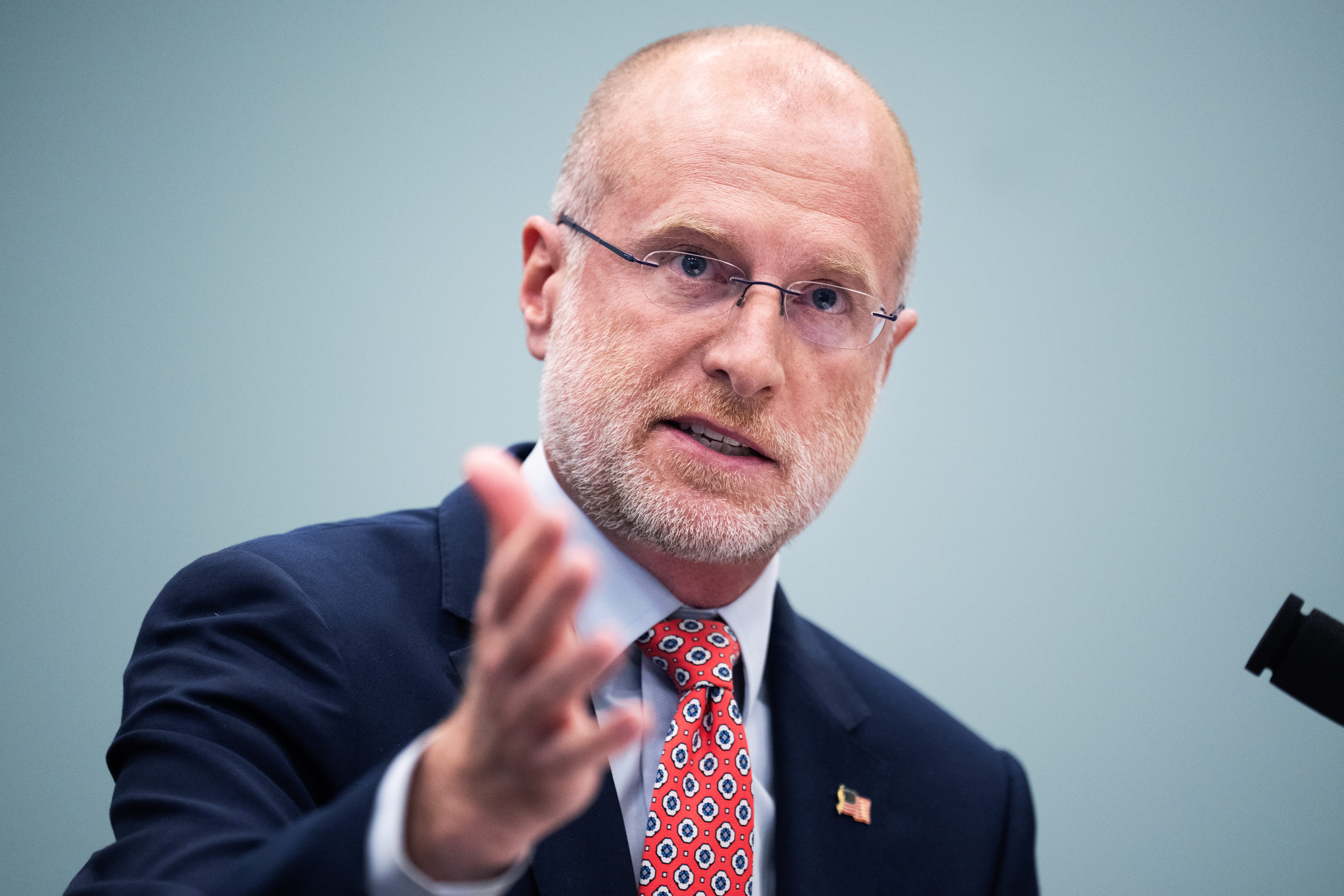
Tom Williams/CQ-Roll Call, Inc via Getty Images
- Jimmy Kimmel’s show was suspended by ABC following criticism by FCC chair Brendan Carr.
- The two biggest local TV operators also came out swinging against Kimmel before his show was pulled.
- The companies are both pursuing, or considering, M&A deals that would require FCC approval.
Jimmy Kimmel is off the air, and his show’s abrupt suspension has put a spotlight on the fraught politics of the broadcast TV business — and the billions of dollars at stake.
The late-night host’s show was pulled from ABC on Wednesday after Kimmel made comments about Charlie Kirk’s death. The comments had drawn the ire of Federal Communications Commission chair Brendan Carr, who said in an interview earlier that day that the FCC might need to place broadcast licenses under review to ensure stations were operating “in the public interest.”
Carr’s comments were bad news for local TV operators who own ABC affiliate stations. These affiliate stations carry ABC programming under contract but aren’t owned by the network itself.
The two biggest local TV operators, Nexstar Media Group and Sinclair, both came out swinging against Kimmel, pressuring ABC to pull the plug on “Jimmy Kimmel Live!”
The companies said they would remove his show from their stations because they objected to Kimmel’s comments. Sinclair’s vice chairman, Jason Smith, called Kimmel’s words “inappropriate and deeply insensitive,” while Nexstar’s broadcasting division president, Andrew Alford, said they were “offensive and insensitive at a critical time in our national political discourse.”
The companies, which did not respond to a request for comment, also have business reasons to keep Carr and the FCC happy.
In August, Nexstar announced it wanted to buy Tegna, another local TV operator, for $6.2 billion in a deal that would require FCC approval. That same month, Sinclair said it was reviewing its business and considering “acquisitions, strategic partnerships, and business combinations,” which would also be subject to FCC review.
Nexstar’s deal with Tegna isn’t straightforward. By buying Tegna, it would likely increase its local TV ownership to more than 39% of US households, which is prohibited by law.
There are some nuances in how the FCC calculates ownership share, including the type of spectrum that a local TV station uses to air its shows. But ultimately, for the deal to proceed, the companies would likely need an FCC waiver or an increase in the national ownership cap, which would require a rule change, said Rob Frieden, a telecommunications and law professor at Penn State University.
“The FCC has recently issued a notice of inquiry, and they have solicited comments to refresh the record because they are certainly looking for ways to accommodate these mega mergers,” Frieden said.
So, what might you do if you want to stay in the FCC’s good graces in this current political environment? As a starting point, you could listen to its chair when he complains about a late-night TV host.
“Nexstar and Tegna have a very recent precedent, the Paramount merger, in which the lesson they may well have learned is that they have to make the Trump administration or the FCC happy enough with them in order to get an approval of the merger,” said Jim Speta, a law professor at Northwestern University.
“Don’t forget that Kimmel is not the first late-night host that has been taken off the air or told they’re going off the air in the past few months,” he said, referring to CBS’s cancellation of “The Late Show With Stephen Colbert.”
CBS wrote in mid-July that Colbert’s cancellation was “purely a financial decision” and was “not related in any way to the show’s performance, content or other matters happening at Paramount.” A week later, the FCC announced it had approved Skydance’s acquisition of Paramount CBS.
Read the original article on Business Insider
The post A $6.2 billion deal looms over Jimmy Kimmel’s suspension appeared first on Business Insider.




